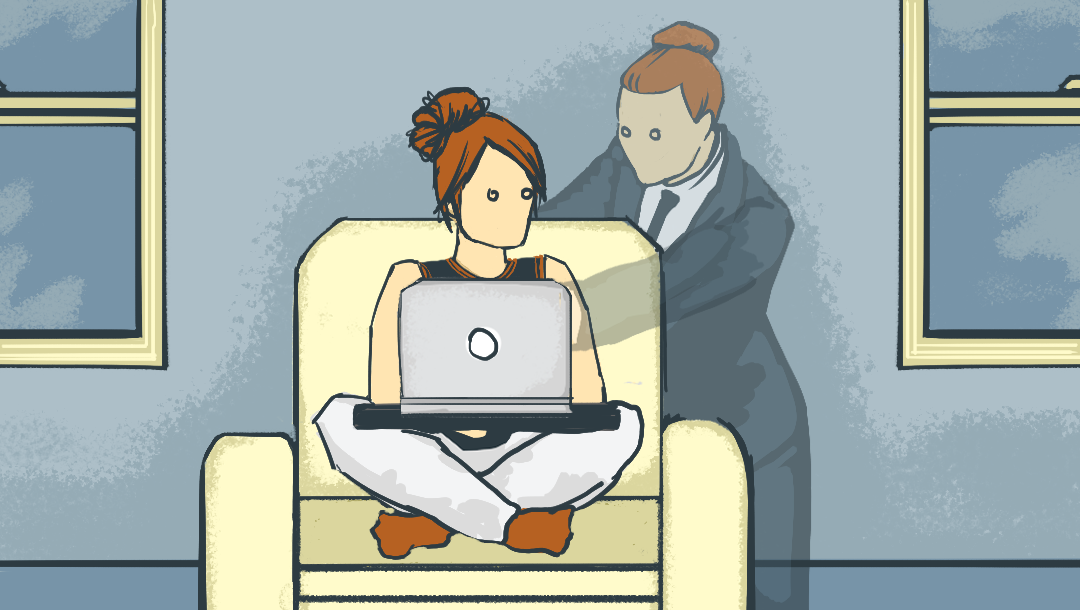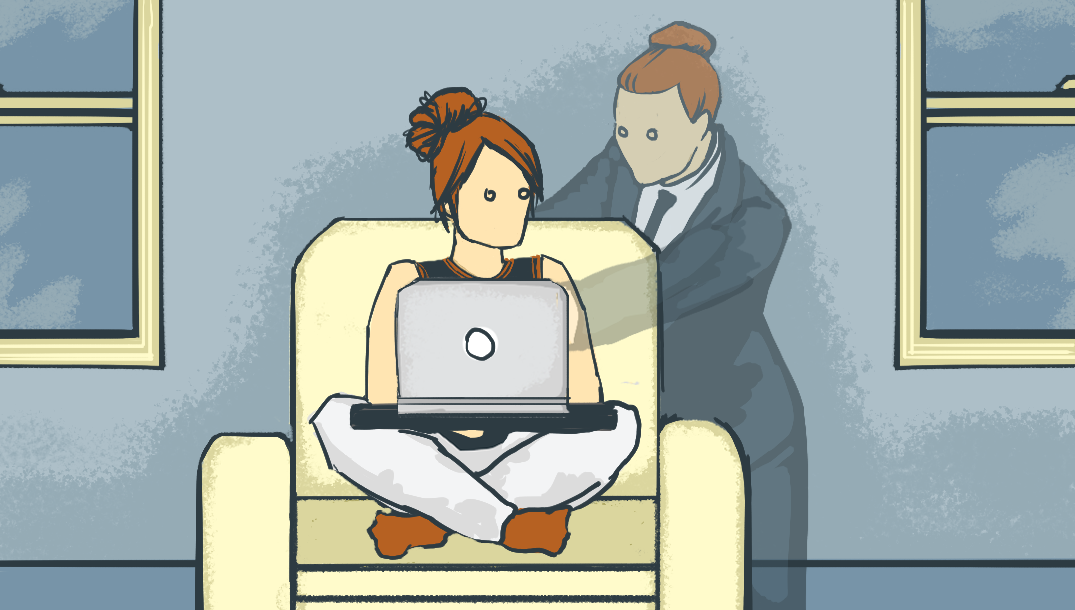
Last year, I got laid off. I had been working for a toy and hardware startup, and the whole vertical was floundering in the wake of Toys “R” Us committing public suicide. Instead of diving back into the industry’s murky waters, I decided to expand my universe, rise to the challenge of my Facebook feed’s motivational quotes, and sell my sales, writing, and admin skills out in parceled pieces—I “went freelance.”
To prepare for this self-starting, self-directed career shift, I read many articles on how to deal with what, behind the Bohemian glamour, it lacked: consistent paychecks, HR departments, and those affable, annoying adult siblings whom you spend the majority of your waking hours with (“co-workers”). The technical articles helped. But now, eight months into my #gigeconomy life, I have discovered certain emotional realities that no one prepared me for.
If you’re a people pleaser (that personality type that cannot focus unless everyone around them is happy), you always said yes. Even if it was exhausting, this trait probably made everyone at your past job love you.
1. If you’re a people pleaser, you’re going to suffer
At your old job, all kinds of people — your boss, your boss’s boss, or that co-worker who acted like they were your boss—inevitably leaned over your desk, ignored the fact that you were busy, and insisted that they needed you to do something else right now. If you’re a people pleaser (that personality type that cannot focus unless everyone around them is happy), you always said yes. Even if it was exhausting, this trait probably made everyone at your past job love you, and so you kept doing it.
With freelancing, however, this kind of people pleasing doesn’t fly. If a client demands your attention while you’re on a deadline with another client, you must tell them to wait — or charge extra for a rush job. If you need to help someone the second they ask, and you don’t know how to value your time yet, these choices are going to make your stomach lock up. But if you don’t establish these boundaries, your projects will eventually become disjointed, off-schedule wrecks—the products of someone who can’t manage their time.
Eventually, you’ll learn to trust that your clients understand you have time limits, and if they don’t, they aren’t clients you should have. That screaming internal voice, afraid that you’re burning bridges left and right by simply asking people to “please wait,” is actually your self-esteem waking up. Make it some coffee. You’re going to need it.
2. You start valuing attention as much as labor
Most of us were raised to measure our labor by hours; it’s how we describe full-time work (“the 40-hour week”), and it’s still how most contractors invoice their time. But a 2016 study found that most full-time office workers work only a mere three hours a day. It’s not that we’re all lazy; it’s that we’re measuring modern office labor by standards that were invented for the assembly line.
When you freelance, the mental energy it takes to be at attention — as well as the mental cost of switching gears between multiple tasks — becomes as meaningful as execution. I may spend only two hours a day total producing one task for one client, but what if I had to interrupt my focus and attend to it four separate times during that same day? What about the hours my brain spends chewing on it at night when I should be sleeping?
When you’re salaried, your boss probably knows that you spend plenty of your “full time” day looking at cat GIFs, complaining about the coffee machine, and chatting with Kathy about Burning Man. But you haven’t been fired. This is not because you’re a double-dealing mastermind; it’s because your boss (if they are reasonable and intelligent) knows that they are paying not only for your labor, but also for the security that comes with knowing that for 40 hours a week, they get to know where you are and can ask you for favors with impunity. In other words, they’re paying for you to be on call.
When you freelance, no one is paying you to be on call, even though you’re likely spending as much mental energy on your client’s schedules, project details, and cultural minutiae as a salaried worker would — only multiplied by however many clients you have.
Ethics aside, one of the most insidious “lifestyle design” myths, touted in books like “The 4-Hour Workweek” and countless “9 to 5 rebel” blogs, is the idea of the digital nomad — that life can become one big beautiful working vacation.
3. You start to hate Tim Ferriss
When you freelance, at some point, somewhere, you’ll encounter the advice of life-hacking guru Tim Ferris. Some of it will sound tempting, even though most of it is based on principles of deliberate ignorance, pretending to be good at something you aren’t good at, and underpaying people in Third World countries to do your work for you. Ethics aside, one of the most insidious “lifestyle design” myths, touted in books like The 4-Hour Workweek and countless “9 to 5 rebel” blogs, is the idea of the Digital Nomad—that life can become one big beautiful working vacation.
While it’s true that I need little more than a computer and a strong WiFi signal to do my job, I can’t just drop everything and start gallivanting around the globe. First, there’s the sheer cost of travel (even with “hacks”) and the fact that I’d be leaving everyone I’d want to travel with behind. But above all, if I were to pack my bags and head to, say, Vienna next week, the last thing I would want to do is stay cooped up in my hotel room, clacking away on Salesforce, while the city pulses outside, taunting me with smells of schnitzel and attractive people wearing that kind of cologne you can’t find back home.
We don’t travel to new places to stare at our computer screens. There is no such thing as a “working vacation.” There’s a shitty vacation or being a shitty worker. Avoid both. When you want to travel or need a rest, tell your clients you’ll be away for a bit. The good news is that they can’t deny your PTO.
4. You’ll miss your boss
“Being your own boss isn’t that great”—we’ve heard this before. But it’s not because as a freelancer, you now have to seek out your own health insurance, provide your own work equipment, and basically become a novice CPA as you learn about SEP-IRAs and Schedule Cs. It’s because now you have no one else to blame if your job sucks.
The timeless ritual of workers across social strata is to clock out, grab a drink at the nearest watering hole, and begin communally cursing that tyrant, that terrible time-waster who signs your paychecks—your boss. You can blame anything and everything on that higher power, who is ostensibly paid more than you are to ensure things run well (and yet, so eye-rollingly often, seems to make things worse.)
Now you are that higher power. Your clients may be the ultimate judges of your work, but you’re the one setting the terms of the work. Messed up that presentation? It’s only your fault you weren’t prepared. Didn’t have time to finish a project? You set the timeline, bud, that’s on you. You could still go to a bar alone (since you have no co-workers) and drink while thinking about how much you hate yourself, but it doesn’t quite have the same charm.
You feel better knowing that there are dozens of other people out there who are willing to link invisible arms with you and silently say, “I care if you put on deodorant today.”
5. You’ll start paying to be annoyed by other people
“No man is an island.” Whether you’re an introvert or an extrovert, this clichéd John Donne line transforms into a profound revelation when you decide to have a life without co-workers.
Enter the co-working space, the lighthouse of the freelance community. For up to $700 per month, you’ll pay to experience the same environment you would get for free at a salaried job, complete with people having obnoxiously loud phone calls next to your desk and some faceless monster eating your lunch out of the fridge.
It won’t necessarily make you friends; you can sit next to someone for half a year, inadvertently memorizing their wardrobe, their laptop stickers, the take-out bag that sits on their desk at lunchtime— without ever learning their name. After all, it’s not like anyone is forcing you to work on a project together. But still, you feel better knowing that there are dozens of other people out there who are willing to link invisible arms with you and silently say, “I care if you put on deodorant today.”
The alternative is staying at home, looking in the mirror for signs of vitamin D deficiency, and asking yourself questions like, “If I suddenly died, how long would it take before they found the body?”
As a freelancer, you might find yourself rushing to invent a schedule that holds all your clients, inadvertently shattering whatever “work/life balance” you developed at your last job, and getting dizzy trying to keep up with legal changes like AB-5. Self-blame can become unavoidable, and your emotional maturity will be tested — and on some days, found to be wanting.
However, there are quieter days. You wake up without an alarm clock, blinking a bit into your pillow as you realize that you did yourself a favor and didn’t set any calls until 12:00 p.m. You go for a walk, looking up at the trees; you’re get better at taking time for yourself and clearing your mind. You come home and make yourself one of those dreamy Pinterest breakfasts that you never had time for when you had to be at work by 8:30 a.m. You eat slowly, actually digesting your food. You do your dishes and wipe the whole counter. You take better care of your home now that you’re in it more often. The tasks of your day begin to land softly, naturally, on the pad of your mind.
You pull out your computer and, in this relaxed and nourished state, accomplish more in an hour than you did in an entire day at your last job. And you realize that maybe — just maybe — going freelance was the right choice.







